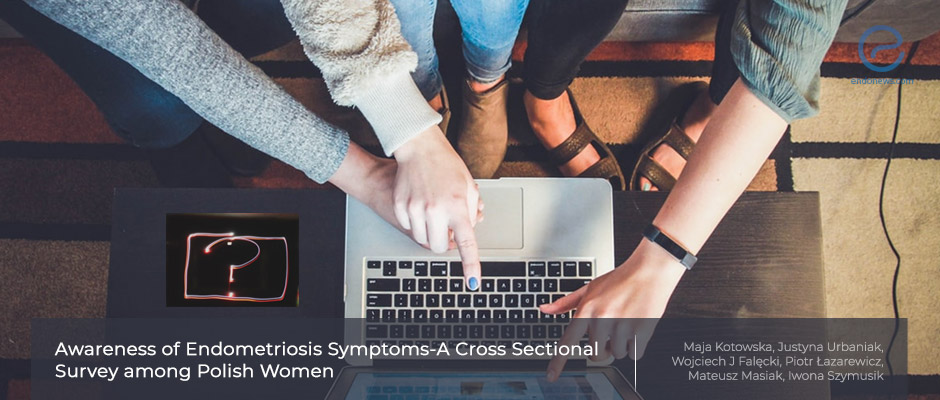How much are the women with endometriosis aware of their symptoms?
Dec 8, 2021
A survey study points out the different symptoms of endometriosis are not fully recognized by women
Key Points
Highlight:
- Public awareness about endometriosis symptoms is crucial in duly diagnosing the disease.
Importance:
- Endometriosis may manifest with an array of different symptoms and can easily be misdiagnosed.
- Since there are no newly developed non-invasive diagnostic tools, symptom recognition helps reach the diagnosis quickly.
Key results:
- The most commonly recognized symptoms of endometriosis were infertility and dysmenorrhea.
- The Internet was found to be the best source of information followed by physicians.
- Medically occupied participants were more likely to identify the symptoms.
- Women with a prior diagnosis of endometriosis were more likely to identify all of the symptoms.
- The least recognized symptoms by participants with a diagnosis of endometriosis were painful defecation, sciatica, and dysuria.
What’s done here:
- This is a study of a cross-sectional survey performed on 3319 Polish women to assess public knowledge about endometriosis symptoms.
- Nine different symptoms were questioned and a five-point scale was used from the least believed to the most believed.
Strengths and limitations:
- The broad population of the participants is the strength.
- The survey being filled only by interested women may cause bias, patients without Internet may not access, the absence of verification tools, and the possible bias in case of one person having all of the symptoms are the limitations.
Lay Summary
Endometriosis is a debilitating disease from the start. It is not easy to diagnose and there is still not a non-invasive gold-standard diagnostic method despite too much effort. Its effects on the quality of life of patients cannot be ignored. It is known that it may take years for an endometriosis patient to get diagnosed correctly. One of the main problems of this issue is the lack of knowledge about the symptoms of endometriosis which usually is misinterpreted by the patients and/or the physicians.
Kotowska et al. from Poland have conducted a study that included a survey that was performed on Polish women with endometriosis to evaluate their understanding of the symptoms of the disease. They investigated two things; first how much the women knew about the symptoms of endometriosis in general, and second how many of these women were actually diagnosed with it. A five-point scale was used from 1 (I strongly believe it’s not a symptom) to 5 (I strongly believe it’s a symptom). The results of the study were published in the September issue of The International Journal of Environmental Research and Public Health.
There were 3319 women who participated in the survey with an average age of 29.2. There were nine symptoms that were questioned and the most commonly recognized ones by the general population were infertility and dysmenorrhea. The most identified symptoms changed in percentage depending on the age groups. The best source to receive information about endometriosis was found to be the Internet (90.5%). The women who had medical occupations were more likely to identify symptoms than the others.
Of all the women in the survey, 9.9% had a prior diagnosis of endometriosis. They were more likely to identify all of the listed symptoms than the others. Even though they were mostly aware of the symptoms of the disease, painful defecation, sciatica and dysuria were the least known symptoms to them.
The authors emphasised that the age group should be taken into account when evaluating symptoms. Chronic pelvic pain syndrome, gastrointestinal problems, and psychosexual issues could easily be missed therefore it is important for the physician to fully assess the patient and the patients to talk about all of their symptoms. The authors concluded that symptom awareness may be used as a diagnostic tool and proposed that the Internet might be a good source to spread knowledge about endometriosis and even serve as an online screening test.
Research Source: https://pubmed.ncbi.nlm.nih.gov/34574840/
endoemetriosis symptoms awareness survey

